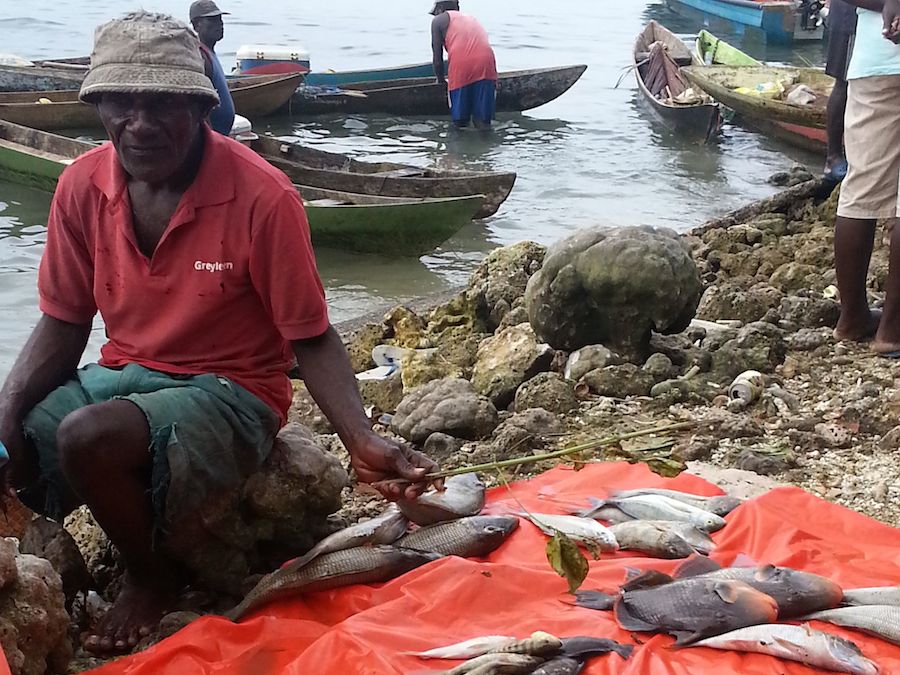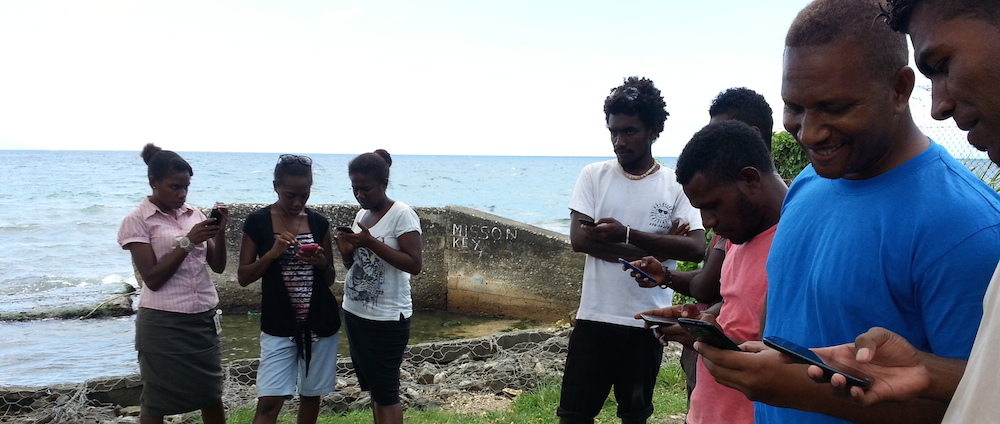16 months ago I departed from the Solomon Islands, enjoying the success of jumpstarting the Happy Fish mobile survey program with a team of dedicated fisheries officers, biologists, technologists, and surveyors. Fast forward and the Hapi Fis team is now celebrating 8000 surveys collected from fish vendors in 5 markets, and have now successfully expanded the program to a second province, Gizo.
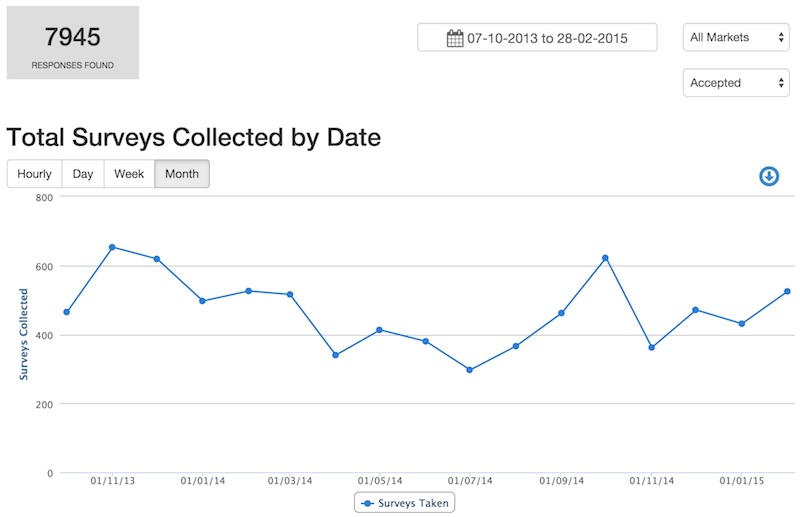
Along the way the survey team never missed a market day and managed to lose only one phone! Truly a great accomplishment and a testament to the dedication of the team and the power of the platform developed by Point 97 to streamline the entire survey workflow. This was the first time a baseline of reef fishery data had been successfully collected using mobile phones.
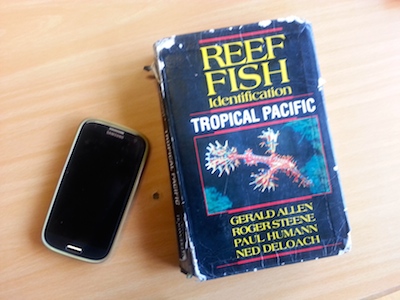
Phase 2
By all measures phase 1 of Hapi Fis was a success. The Ministry could now see how much fish was coming into the markets and where it was coming from. They also now had a more direct line of communication from vendors to understand changing conditions for buying, transporting, and selling fish. That storm this week over in Isabel province? It’s delaying fishing shipments. That extra glut of fish coming through the market over the last month? It’s coming from another province and isn’t letting up which means a likely increase in fishing pressure there. Something to keep a closer eye on.

The information coming in is at a frequency and level of quality that the Ministry has never had before. But it needs to go deeper. Because in order to make larger management decisions they need to be able to pinpoint issues with specific species, gear types, and months of the year (when those species spawn). This means capturing individual fish measurements including length, weight, and sexual maturity of the more than 100 species of reef fish that come through the markets. Gaining access to the vendors catch at this level was not going to be easy.
Training
To move things forward I was asked to return to the Solomon Islands in February with Dr. Kevin Rhodes. In 2 short weeks we were able to work with the team to enhance the survey, and train on identifying and measuring fish at the species level. The survey team was really up for the task and came early and stayed late in order to maximize their time with us.
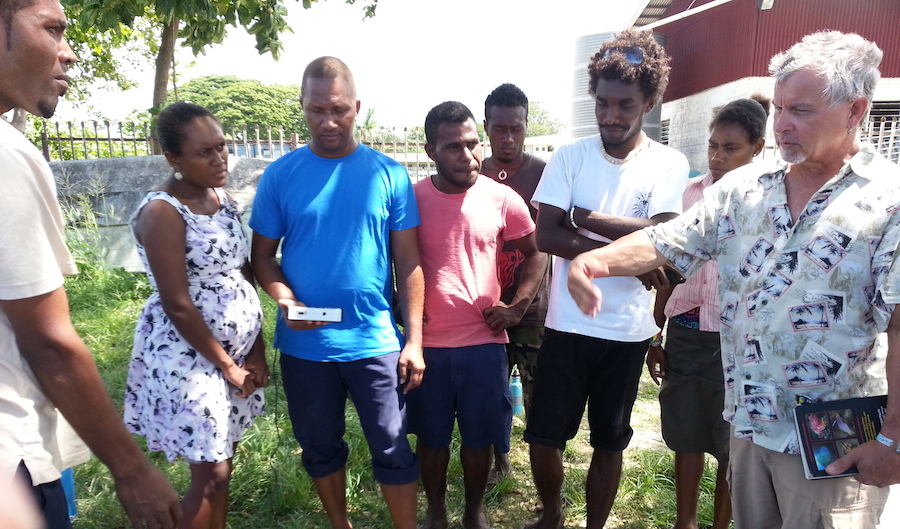
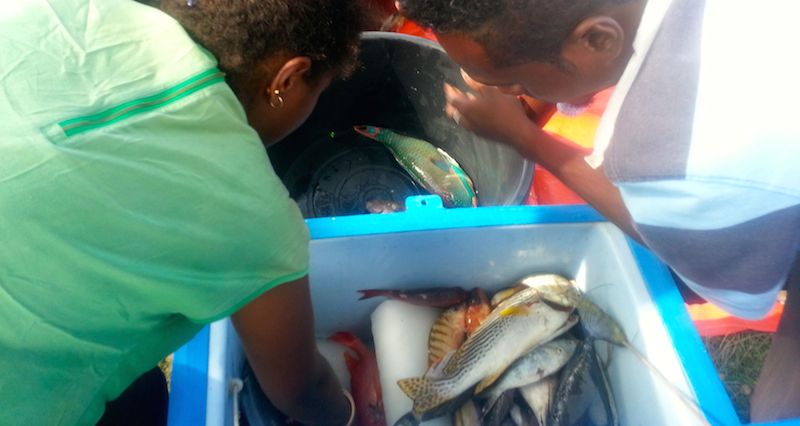
Dr. Rhodes even brought along a nice setup for rapid photographing and measurement of the fish so that they could be identified and entered at a later time if needed.


System Transition
In the midst of all this activity, I found time to make some bug fixes and work with the new central Government IT Support Unit to test out the transition of Hapi Fis to their infrastructure. It’s impressive what their group has accomplished centralizing the systems of all of the different ministries.
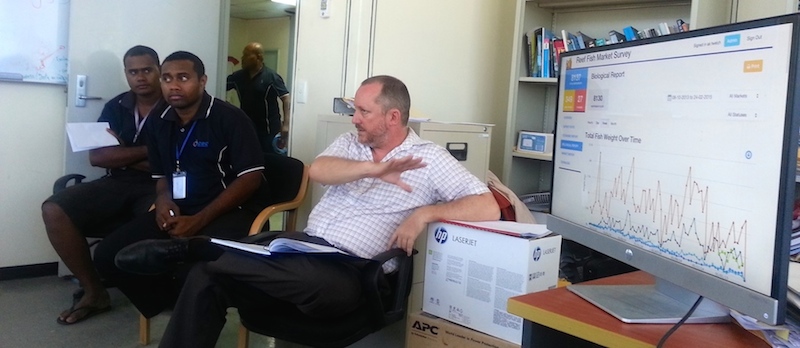
Security
The ministry continues to find additional value in the data they’ve collected. Late last year one of the longtime vendors was trying to acquire a bank loan and didn’t have the necessary records to prove their sales history. The ministry was able to provide an official report using the information from Hapi Fis and the loan was approved. It’s these types of incentives that will keep the vendors engaged and willing to continue providing information.
Next Steps
The data for this project is continuing to flood in and Hapi Fis is doing its part to organize it and provide insight. Naturally, as soon as you answer one question with the data it leads to two new ones and its easy to get lost down the rabbit hole. One thing is for sure, reef fish is a key source of food for the country and all signs point to diminishing returns in the face of a rising population. The ministry knows that action needs to be taken and that they need to involve the public in the process. The question is what action are they going to take?
